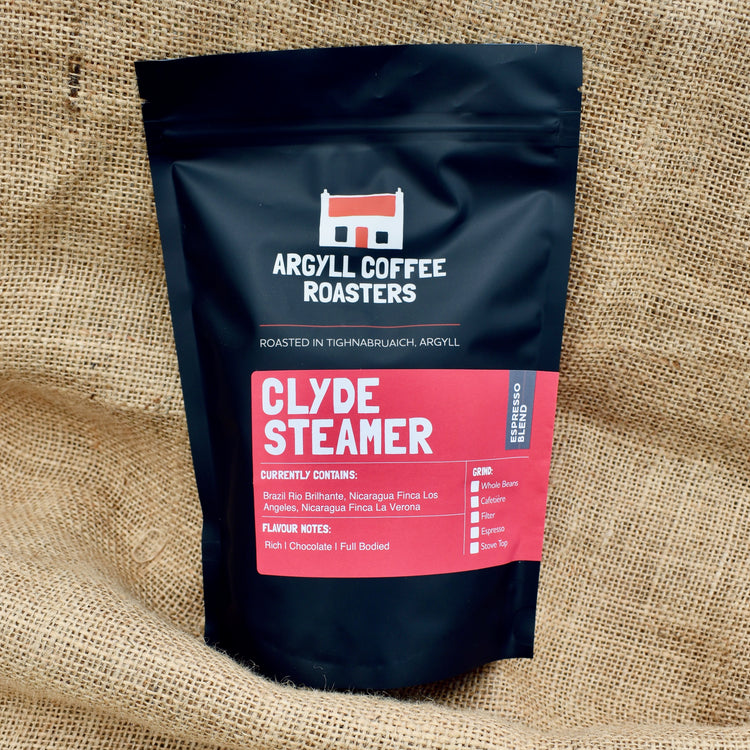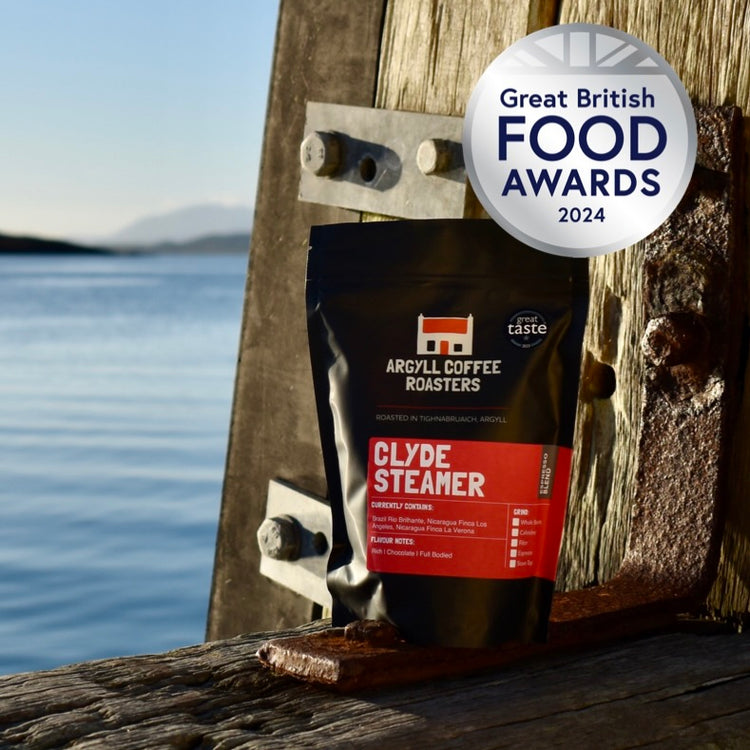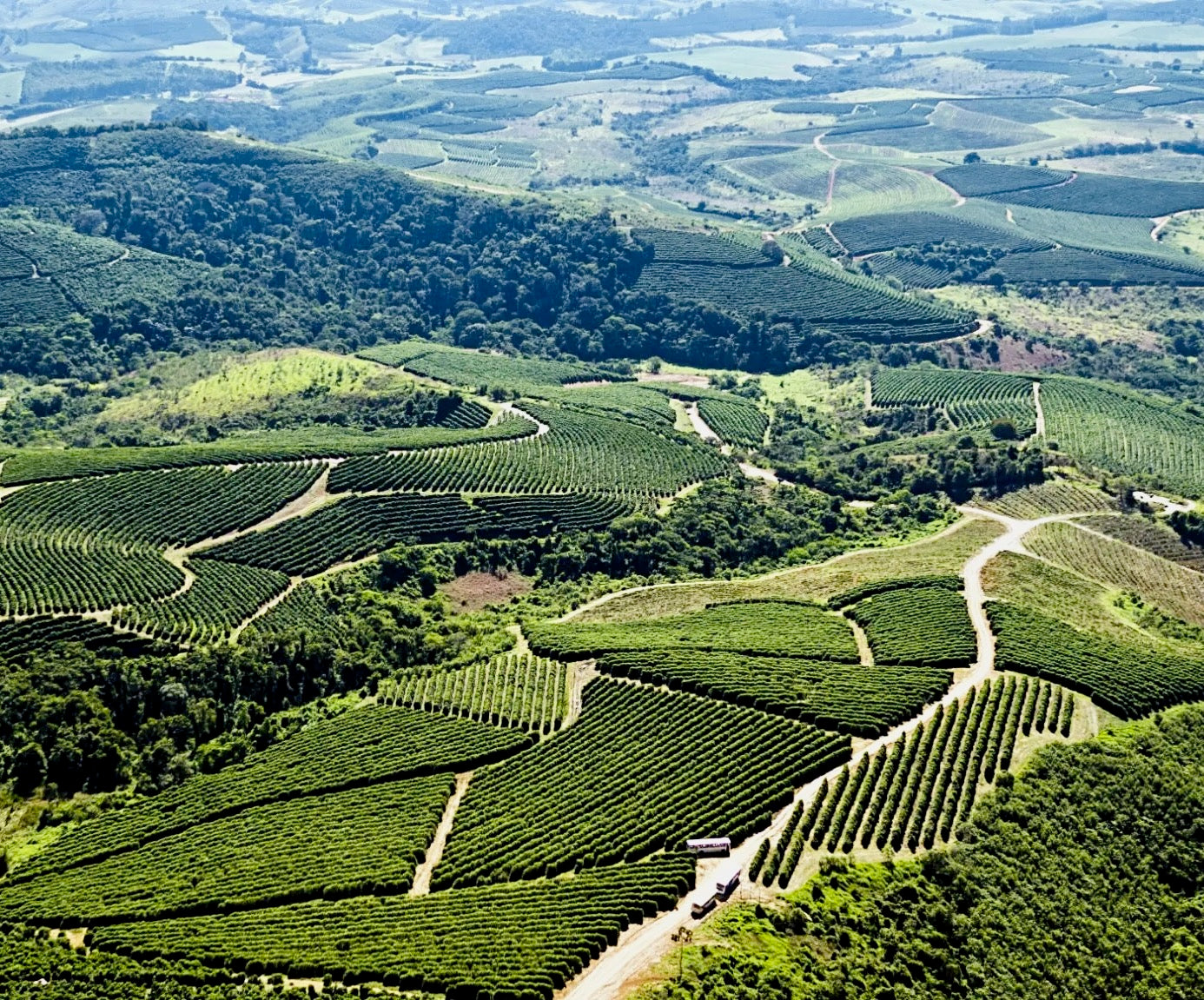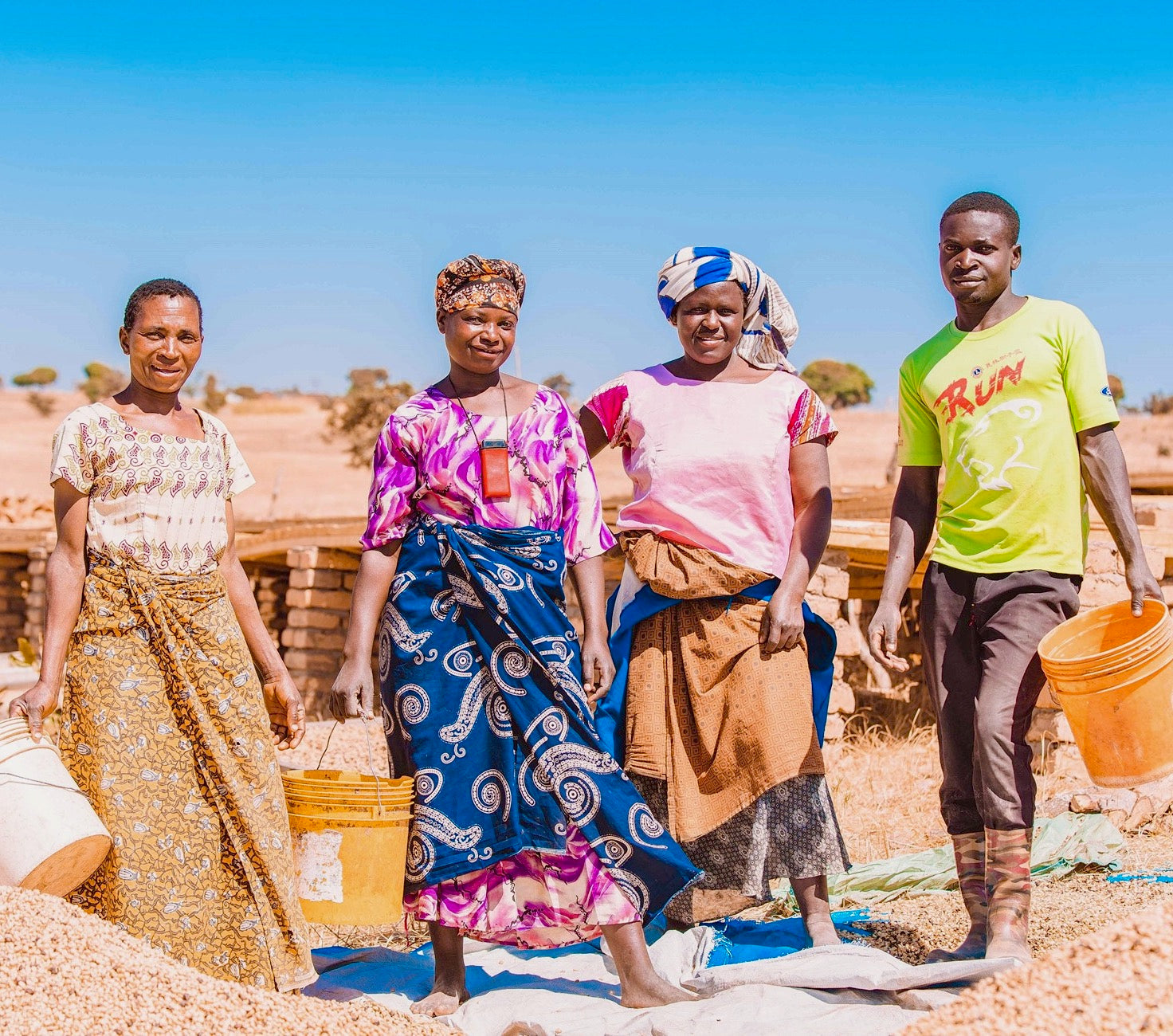Free UK shipping on all orders £18 and over
Clyde Steamer Espresso Blend - 12 months (prepaid)






Clyde Steamer Espresso Blend - 12 months (prepaid)

Buy a 12-month subscription up front and save 15% plus free delivery! This makes a perfect gift. Our award-winning house espresso blend delivers a full-bodied coffee with bags of character. This blend is seasonally changing, but always delivers rich chocolate and nutty flavours.
Couldn't load pickup availability
Product variants:
Select grind: (Need help? View Grind guide)
Description
Tanzania Tarime
Farm:
Muriba Coffee Processing Unit
Processing:
Natural
Owner:
750 smallholder farmers
Region:
Mara
Varietal(s):
Kent and N39
Altitude:
1,600 to 1,800m
Town:
Tarime
Mexico Finca Guadalupe Zaju
Farm:
Finca Guadalupe Zaju
Processing:
Washed
Owner:
Teddy Esteve & Family
Region:
Chiapas
Varietal(s):
Marsellesa, Hybrids, Starmaya
Altitude:
900 to 1,400 metres above sea level
Town:
Toquian Grande & Pavencul, Soconusco Region
Brazil Fazenda Santa Cruz
Farm:
Santa Cruz
Processing:
Pulped Natural
Owner:
Guilherme and Karyna Rabelo
Region:
South of Minas
Varietal(s):
Catuaí
Altitude:
980 meters above sea level
Town:
Varginha








